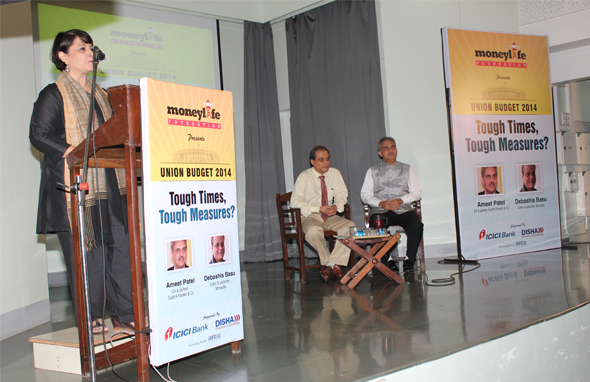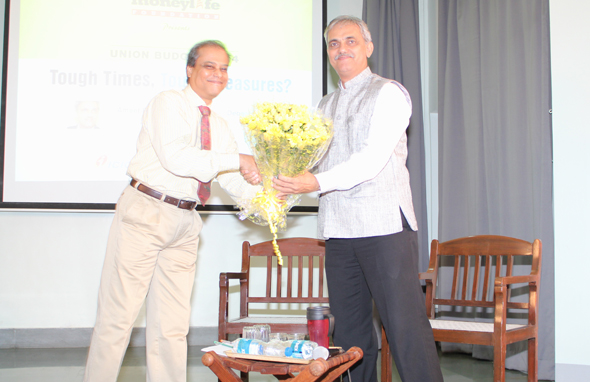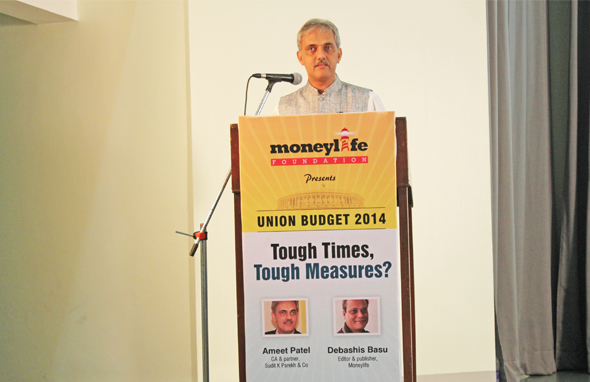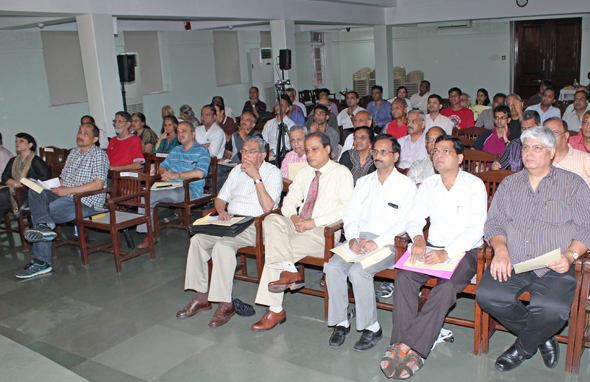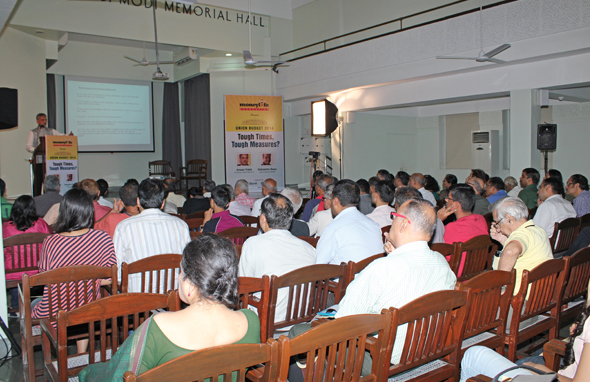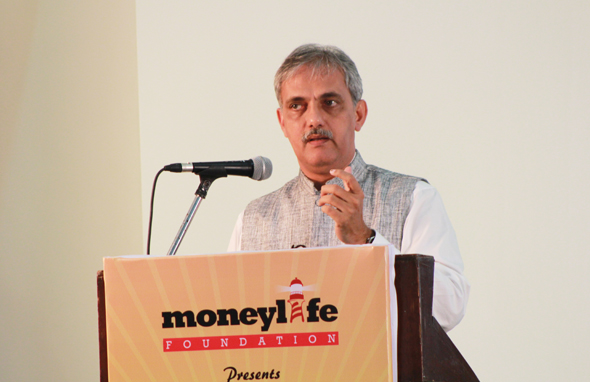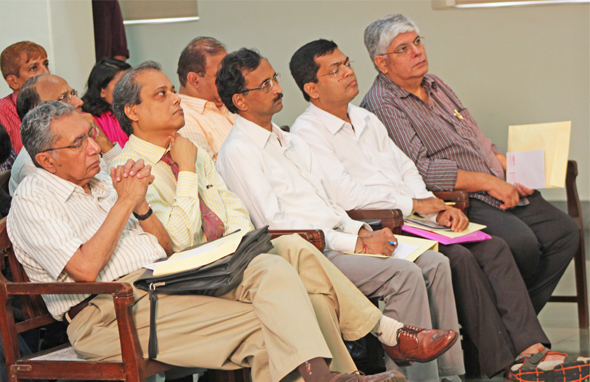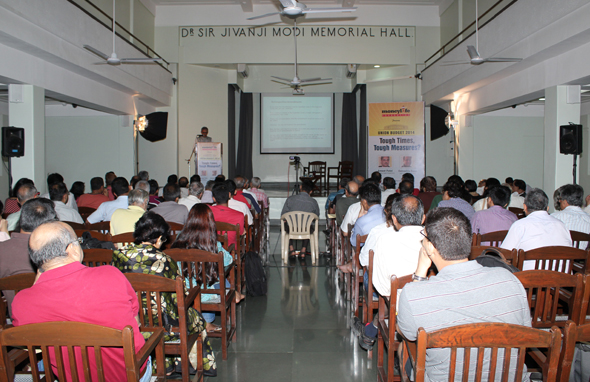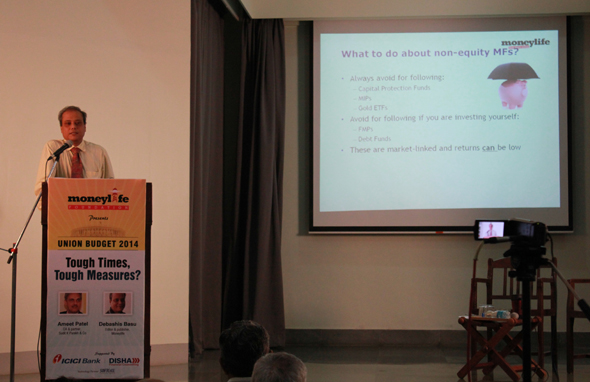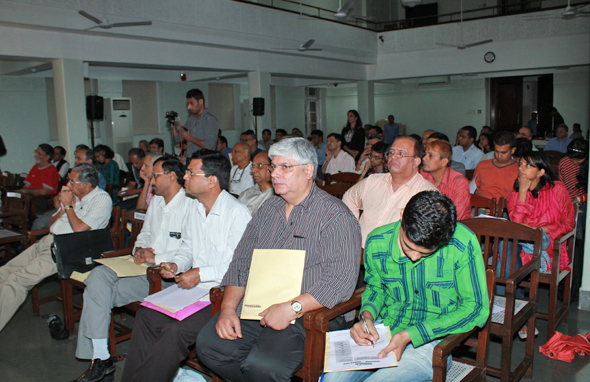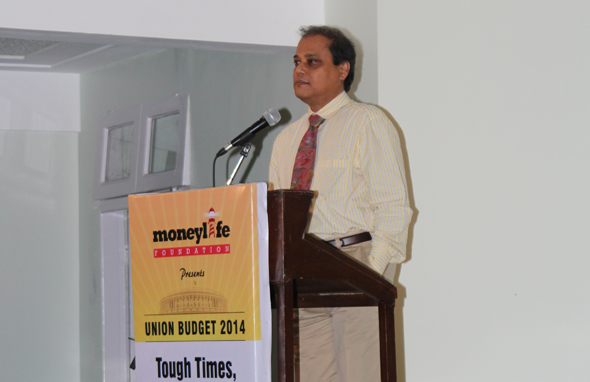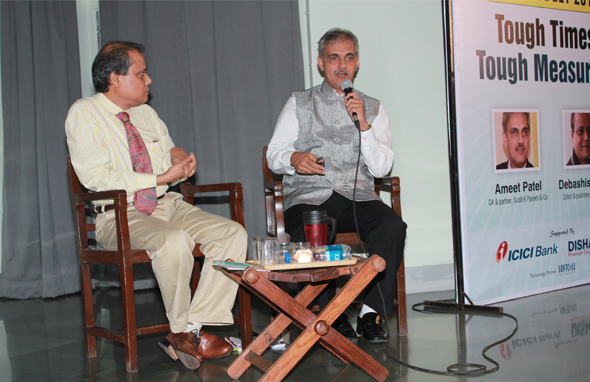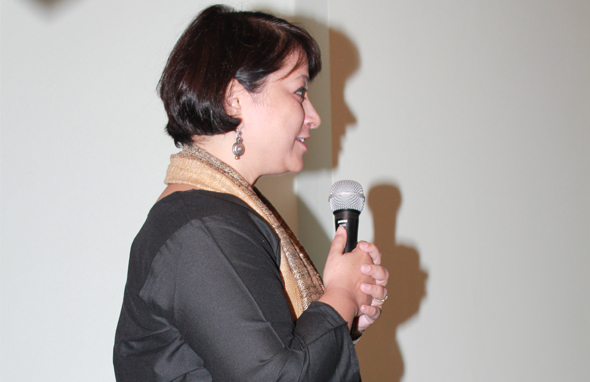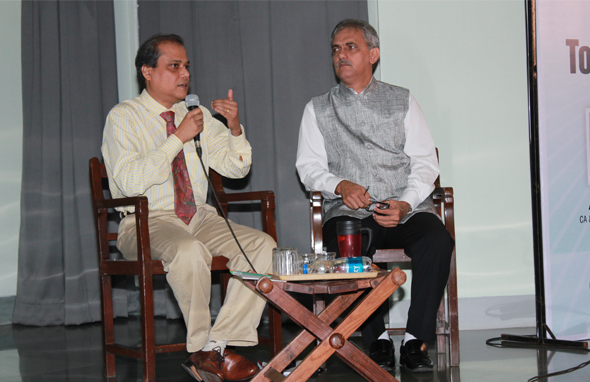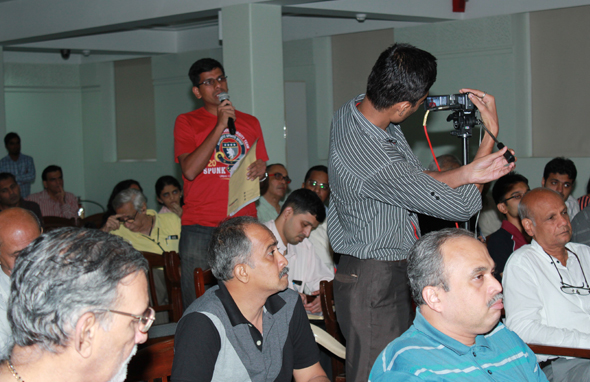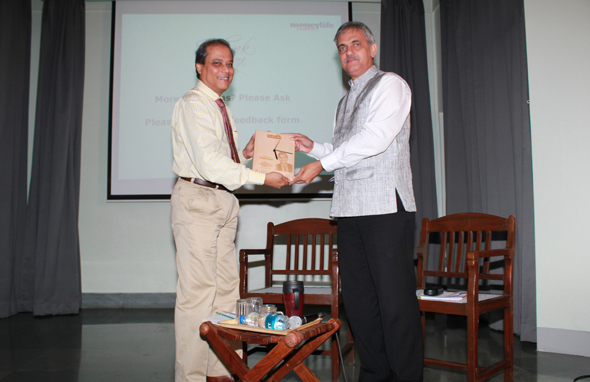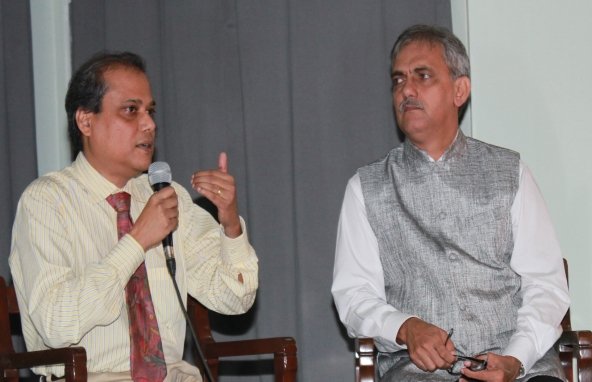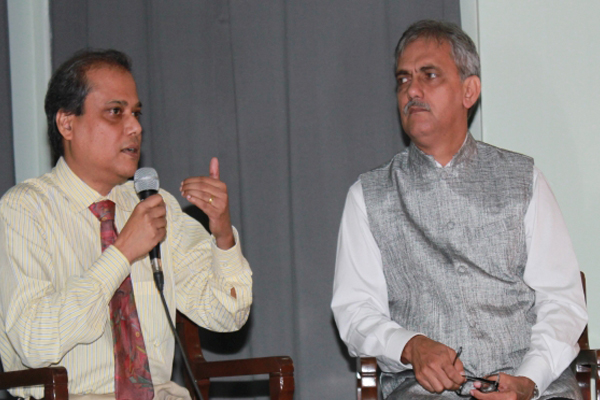
India’s new Finance Minister Arun Jaitley delivered his maiden budget on the 10th July. Budget 2014 had huge expectations tethered to it and the stock markets too reflected these expectations. To take stock of what the budget did well and where it failed, Moneylife Foundation organised a seminar with Ameet Patel and Debashis Basu in Mumbai.
Ameet Patel, a Chartered Accountant and partner at Sudit K Parekh & Co, spoke about changes in taxation and innovations (or the lack of it) in the budget. Debashis Basu, Moneylife Foundation’s Founder Trustee, took on how the budget would affect investments and the investment climate. Their talks were followed by a lively interaction between both the experts and with the audience.
Historically, budgets have become more and more muted in their effect on the economic and investment climate. Mr Patel began therefore, by listing out some expectations that India had from this budget, especially on the tax front. Mr Patel then clarified the changes to the tax slabs, dividend distribution tax, tax deductions and the impact of all these changes on investors. He noted that ‘Achhe Din’ are indeed here for foreign investors and rued that similar benefits had not been made available to domestic investors. On the changes in taxation for debt funds, he said, “They might as well shut down the debt funds.”
Mr Patel said one of the biggest plus points in the budget was a statement of intent on rolling out the Goods and Services Tax (GST). Even though there was no firm commitment on a proposed date for introduction of GST, the Finance Minister assured states that their concerns would be taken care of and a consensus would be built with the states for a smooth roll-out of the GST.
Mr Basu took the stage to speak on how the Budget affects future investments for investors and savers. He began with the macro view of the economy and pointing out that the budget did not deliver smaller government. The borrowing needs of the government, the interest outgo and have the needed spending cuts, or improved climate for doing business and so the fiscal deficit remained a serious impediment to bringing down inflation and interest rates. The bugdet has changed the tax treatment of non-equity funds, but this would not affected Moneylife readers because Moneylife has never advocated non-equity funds like Monthly Income Plan, Capital Protection Funds and hybrid multi-assets funds.
Mr Basu said the given the budget, the economy was likely to take longer to recover. Over this period, the rupee was unlikely to strengthen soon and inflation would continue to be at current levels for a while. In such a scenario trust ONLY high quality stocks, he said. “I would tend to favour only large cap funds and select midcap funds, and stocks in the IT, pharma and consumer goods” he said. He ended his talk by saying that you could still “keep the faith but keep a watch out” regarding the new administration and Finance Minster.


